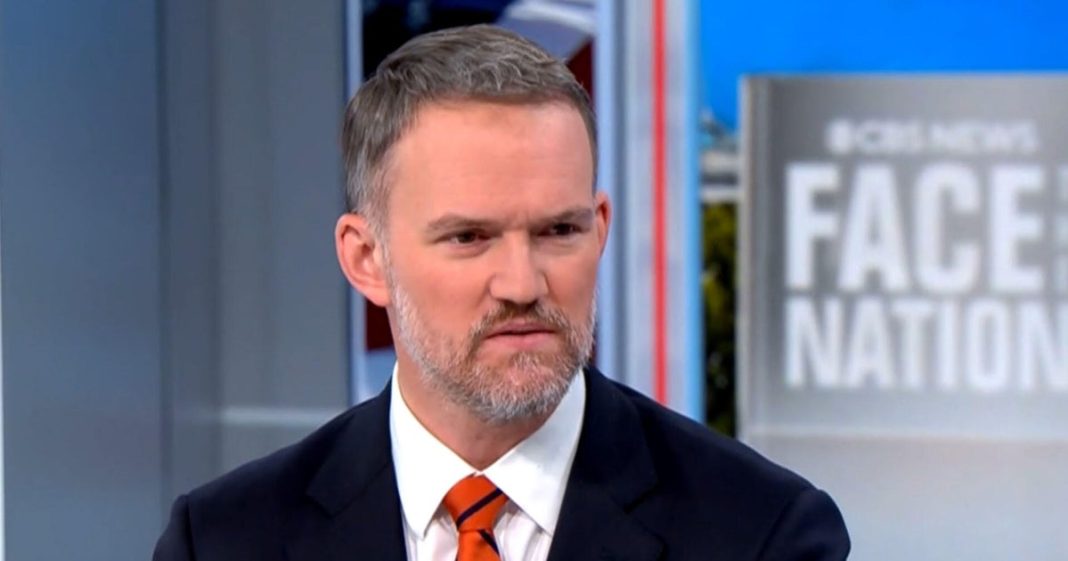Jamieson Greer, the U.S. trade representative, said in an interview that aired Sunday that tariff rates are “pretty much set” on more than 60 trading partners after President Trump’s executive order last week.
“So these, these tariff rates are pretty much set,” Greer said in an interview Friday with “Face the Nation with Margaret Brennan. “I expect I do have my phone blowing up. There are trade ministers who, who want to talk more and see how they can work in a different way with the United States, but I think that we have, we’re seeing truly the contours of the president’s tariff plan right now with these rates.”
Hours ahead of the Trump administration’s self-imposed deadline for baseline tariffs on Friday, the White House announced tariff rates for imports from dozens of countries, including a handful that have cut trade deals with the administration and dozens that haven’t reached a deal yet. All imports will have a 10% tariff rate as of Aug. 7, according to the executive order.
When asked if Mr. Trump will be negotiating more deals in coming days, Greer answered, “I don’t think they will be,” but he added these tariff rates are “set rates pursuant to deals.”
“When the president is looking at this, he looks at potential deals, and we bring him potential concessions from countries and the things they might want to do,” Greer said. “And he compares that to the potential tariff that might be applied to try to get that deficit down. And then talking to his advisors, he makes a call on this.”
Ahead of the Aug. 1 deadline, the Trump administration touted a number of deals for tariffs, including South Korea, the European Union and Britain. But other major U.S. trading partners did not reach deals, including Canada, which Mr. Trump levied a 35% tariff on goods not subject the United States-Mexico-Canada Agreement (USMCA). Canada is the U.S.’ second-largest trading partner.
“The President’s view with with every country, whether it’s Canada or Mexico, and regardless of the kind of trade agreement we have in place, is that the net result of the trading system, whether it’s our WTO agreements or our existing trade agreements, the net result has been that a lot of the manufacturing has gone overseas, and when that’s the net result, you can’t continue with that system,” Greer said.
“So you know, I’m not concerned that it’s going to complicate things with Canada. Our view is the President is trying to fix the terms of trade with Canada, and if there’s a way to a deal, we’ll find it. And if it’s not, we’ll have the tariff levels that we have,” the trade adviser said.
Bank of America CEO Brian Moynihan, who Brennan interviewed separately on “Face the Nation,” said that Bank of America economists have predicted that while the economy will still continue to grow, they are predicting “less growth than they would have had six, nine months ago, and reflects the impact of the tariff war and the trade and all that.”
As for the economic impact that tariffs will have on the economy, Moynihan said “no one really knows, honestly, because this is a different regime than we’ve been in before.”




